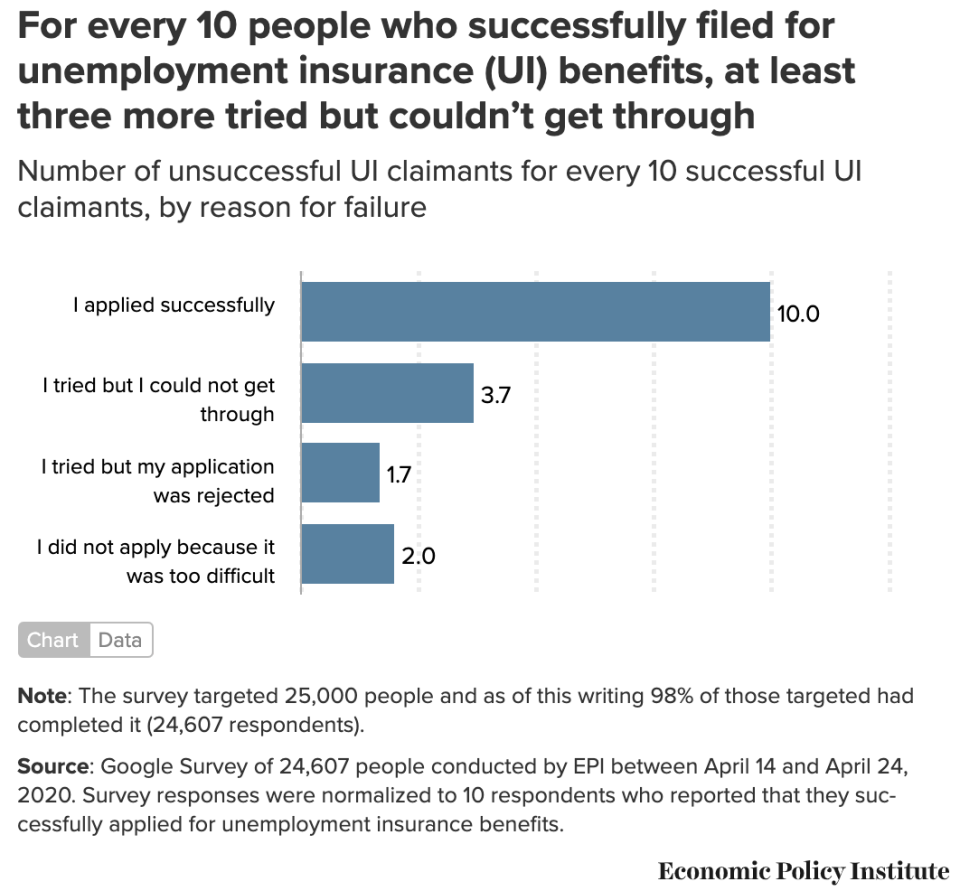Up to 13 million people unable to collect unemployment. Here's why
Millions of Americans who lost their jobs over the past couple of weeks have been unable to collect needed benefits, according to a new survey by the Economic Policy Institute.
Between March 22 and April 18, 21.5 million unemployment claims were filed, according to the Department of Labor.
But according to the left-leaning EPI, the official number understates the demand for jobless benefits. EPI estimates that an additional 8 million to 13 million laid-off workers would have filed claims during those five weeks had the unemployment filing system not been overwhelmed. (EPI surveyed 24,607 adults.)

For every 10 people who said they were able to successfully file for benefits, three to four more were unable to apply because the system was overburdened and an additional two people gave up entirely on the application process because it was too hard, according to the survey.
In March, Congress passed the Cares Act, which expanded unemployment benefits to include freelancers and independent contractors. The legislation also gives workers an additional $600 per week and extended the length of time a laid-off worker could receive benefits by 13 weeks. However, those enhanced unemployment benefits only apply to laid-off workers who were able to file successfully.
State unemployment benefits systems were clearly unprepared for the flood of applications that hit after companies shut down and were forced to lay off millions. Governors across the U.S. have lamented the stressed systems that haven’t been able to meet the needs of the newly unemployed. “We’re in a situation where this system is not handling the needs of the people of Florida in an adequate way,” Florida Gov. Ron DeSantis told reporters this month. New Jersey Gov. Phil Murphy said his state’s claims system is 40 years old, while Virginia’s governor called for an upgrade to the state’s online claims filing system, and boosting the call center staff by 20%.
“At a minimum, states should presume everyone is eligible and immediately pay benefits, only verifying eligibility and reviewing claims after the unprecedented wave of claims slows down,” wrote EPI’s Ben Zipperer and Elise Gould.
More from Sibile:
Coronavirus retail shift helps laid off Americans find work: report
Small-business owner describes frustrating PPP experience with longtime banker JP Morgan Chase
Coronavirus lockdown may have this deadly secondary effect
Coronavirus cancellations: Outrage over lack of refunds as 59 million people lost money
Restaurants fear small business sweeteners for coronavirus package won’t be enough
